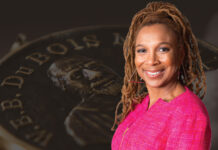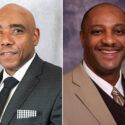A new study published by researchers at Cornell University finds that the election of Barack Obama as president of the United States in 2008 had a profound impact of African American college students’ perceptions of racial identity.
The researchers interviewed more than 300 African American undergraduates before and after the 2008 election. The authors examined the importance of race to a person’s self-concept, whether or not the subjects felt good about being part of their racial group, and on how they perceived their racial group is regarded by the society at large. The results showed that African American students expressed an increased sense of racial identity in all three subject areas after the election.
 “Obama’s election triggered deep explorations or ‘encounter experiences’ in which these African-Americans were challenged to think through the importance and positive value that can be associated with being black,” said Anthony Burrow, assistant professor of human development in Cornell’s College of Human Ecology and co-author of the study. “One main message here is that important race-relevant social or political events can shift the way individuals think about their race as well as their perception of how others view their race.”
“Obama’s election triggered deep explorations or ‘encounter experiences’ in which these African-Americans were challenged to think through the importance and positive value that can be associated with being black,” said Anthony Burrow, assistant professor of human development in Cornell’s College of Human Ecology and co-author of the study. “One main message here is that important race-relevant social or political events can shift the way individuals think about their race as well as their perception of how others view their race.”
The paper was published in the journal Developmental Psychology.












not surprising. this is what his (president obama’s) haters were–and still are– so afraid of!
Call me silly. But our President is biracial–his mother is white, father black African. Since when is being biracial equivalent to being monoracially black? I detect a self-esteem problem here. Jesse Jackson, who ran in 1984 is monoracially black–what was his effect on the racial identity of descendants of Negro Slaves?
I understand your point and sympathetic toward. What’s the main point here is that the president self-identifies as being an African-American. In a way, this identification transcends our common and conventional understanding of race in America. Reading his memoir, “Dreams from My Father” opened my understanding of this.
Biracial (black/white) individuals are still seen as black (read: non-white) in society’s eyes. So whether Obama is monoracially or biracially black, he can still have an impact on black individuals and their identity. I’m not saying that they’re the same thing, just that it shouldn’t matter as far as the struggles he’s had to go through and, therefore, the fact that blacks can relate to him.
Yes, but being that he is biracial, that is black and white the privileges that are/have been afforded him have/has made his journey a little less difficult juxtapose to someone who is mono racial–black. He may be still seen as black (and I do see him as black), but his experiences do not measure the experiences of “regular everyday black folks.”
So I guess I’d have to read the study that was done to get the gist of who and what geographic area these students were from who were surveyed.